Filter by
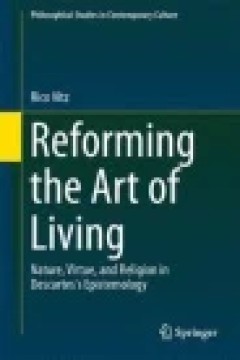
Reforming the Art of Living
Descartes’s concern with the proper method of belief formation is evident in the titles of his works—e.g., The Search after Truth, The Rules for the Direction of the Mind and The Discourse on Method of rightly conducting one’s reason and seeking the truth in the sciences. It is most apparent, however, in his famous discussions, both in the Meditations and in the Principles, of one particu…
- Edition
- -
- ISBN/ISSN
- -
- Collation
- -
- Series Title
- -
- Call Number
- -
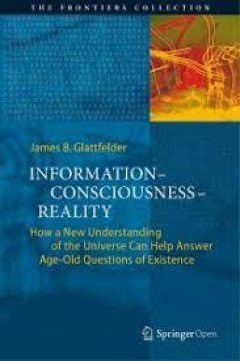
Information—Consciousness—Reality How a New Understanding of the Univers…
This open access book chronicles the rise of a new scientific paradigm offering novel insights into the age-old enigmas of existence. Over 300 years ago, the human mind discovered the machine code of reality: mathematics. By utilizing abstract thought systems, humans began to decode the workings of the cosmos. From this understanding, the current scientific paradigm emerged, ultimately discover…
- Edition
- -
- ISBN/ISSN
- -
- Collation
- -
- Series Title
- -
- Call Number
- -
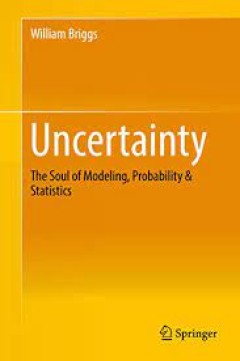
Uncertainty The Soul of Modeling, Probability & Statistics
This book presents a philosophical approach to probability and probabilistic thinking, considering the underpinnings of probabilistic reasoning and modeling, which effectively underlie everything in data science. The ultimate goal is to call into question many standard tenets and lay the philosophical and probabilistic groundwork and infrastructure for statistical modeling. It is the first book…
- Edition
- -
- ISBN/ISSN
- 978-3-319-39756-6
- Collation
- -
- Series Title
- -
- Call Number
- -
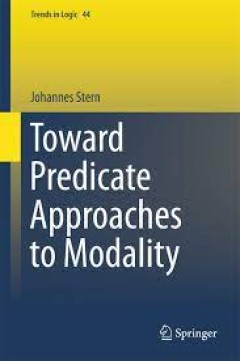
Toward Predicate Approaches to Modality
In this volume, the author investigates and argues for, a particular answer to the question: What is the right way to logically analyze modalities from natural language within formal languages? The answer is: by formalizing modal expressions in terms of predicates. But, as in the case of truth, the most intuitive modal principles lead to paradox once the modal notions are conceived as predicate…
- Edition
- -
- ISBN/ISSN
- 978-3-319-22557-9
- Collation
- -
- Series Title
- -
- Call Number
- -
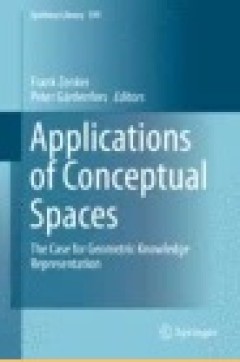
Applications of Conceptual Spaces: The Case for Geometric Knowledge Represent…
This volume provides an overview of applications of conceptual spaces theory, beginning with an introduction to the modeling tool that unifies the chapters. The first section explores issues of linguistic semantics, including speakers’ negotiation of meaning. Further sections address computational and ontological aspects of constructing conceptual spaces, while the final section looks at phil…
- Edition
- Ed. 1
- ISBN/ISSN
- 978-3-319-15021-5
- Collation
- VIII, 277
- Series Title
- Synthese Library
- Call Number
- 519.4 APP a
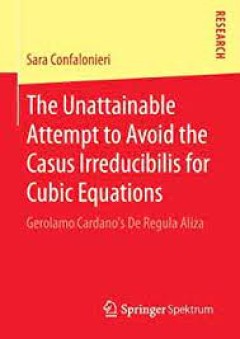
The Unattainable Attempt to Avoid the Casus Irreducibilis for Cubic Equations…
Sara Confalonieri presents an overview of Cardano’s mathematical treatises and, in particular, discusses the writings that deal with cubic equations. The author gives an insight into the latest of Cardano’s algebraic works, the De Regula Aliza (1570), which displays the attempts to overcome the difficulties entailed by the casus irreducibilis. Notably some of Cardano's strategies in this tr…
- Edition
- -
- ISBN/ISSN
- 978-3-658-09275-7
- Collation
- -
- Series Title
- -
- Call Number
- -
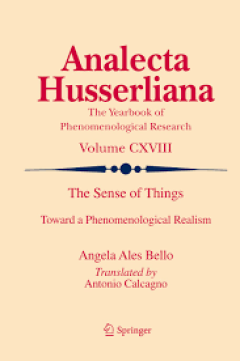
The Sense of Things Toward a Phenomenological Realism
This book proposes a new interpretative key for reading and overcoming the binary of idealism and realism. It takes as its central issue for exploration the way in which human consciousness unfolds, i.e., through the relationship between the I and the world—a field of phenomenological investigation that cannot and must not remain closed within the limits of its own disciplinary borders. The b…
- Edition
- -
- ISBN/ISSN
- 978-3-319-15395-7
- Collation
- -
- Series Title
- -
- Call Number
- -
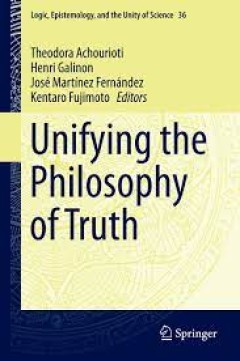
Unifying the Philosophy of Truth
This anthology of the very latest research on truth features the work of recognized luminaries in the field, put together following a rigorous refereeing process. Along with an introduction outlining the central issues in the field, it provides a unique and unrivaled view of contemporary work on the nature of truth, with papers selected from key conferences in 2011 such as Truth Be Told (Amster…
- Edition
- -
- ISBN/ISSN
- 978-94-017-9673-6
- Collation
- 30 b/w illustrations
- Series Title
- -
- Call Number
- -
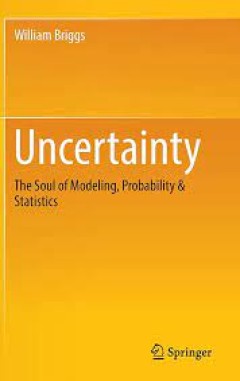
Uncertainty The Soul of Modeling, Probability & Statistics
This book presents a philosophical approach to probability and probabilistic thinking, considering the underpinnings of probabilistic reasoning and modeling, which effectively underlie everything in data science. The ultimate goal is to call into question many standard tenets and lay the philosophical and probabilistic groundwork and infrastructure for statistical modeling. It is the first book…
- Edition
- -
- ISBN/ISSN
- 978-3-319-39756-6
- Collation
- 23 b/w illustrations
- Series Title
- -
- Call Number
- -
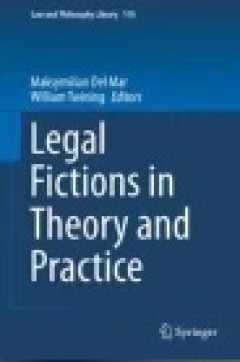
Legal Fictions in Theory and Practice
This multi-disciplinary, multi-jurisdictional collection offers the first ever full-scale analysis of legal fictions. Its focus is on fictions in legal practice, examining and evaluating their roles in a variety of different areas of practice (e.g. in Tort Law, Criminal Law and Intellectual Property Law) and in different times and places (e.g. in Roman Law, Rabbinic Law and the Common Law). The…
- Edition
- -
- ISBN/ISSN
- 978-3-319-09232-4
- Collation
- -
- Series Title
- -
- Call Number
- -
 Computer Science, Information & General Works
Computer Science, Information & General Works  Philosophy & Psychology
Philosophy & Psychology  Religion
Religion  Social Sciences
Social Sciences  Language
Language  Pure Science
Pure Science  Applied Sciences
Applied Sciences  Art & Recreation
Art & Recreation  Literature
Literature  History & Geography
History & Geography